Vietnam and EU seek to maximise benefits from EVFTA post-COVID-19
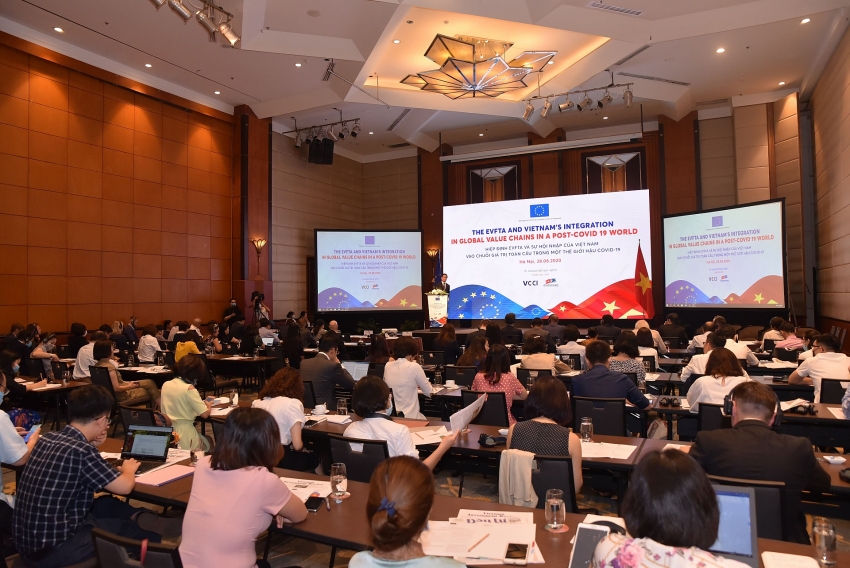 |
| More than 100 guests took part in the seminar |
Making the opening speech, Giorgio Aliberti, head of the Delegation of the EU to Vietnam emphasised that, “The signing and ratification of the trade agreement is an historic milestone in EU-Vietnam cooperation. The EU-Vietnam Free Trade Agreement (EVFTA) will be an important factor to nurture opportunities for economic recovery for Vietnam in the aftermath of COVID-19. The reduction of tariffs is among the top priorities of this agreement.”
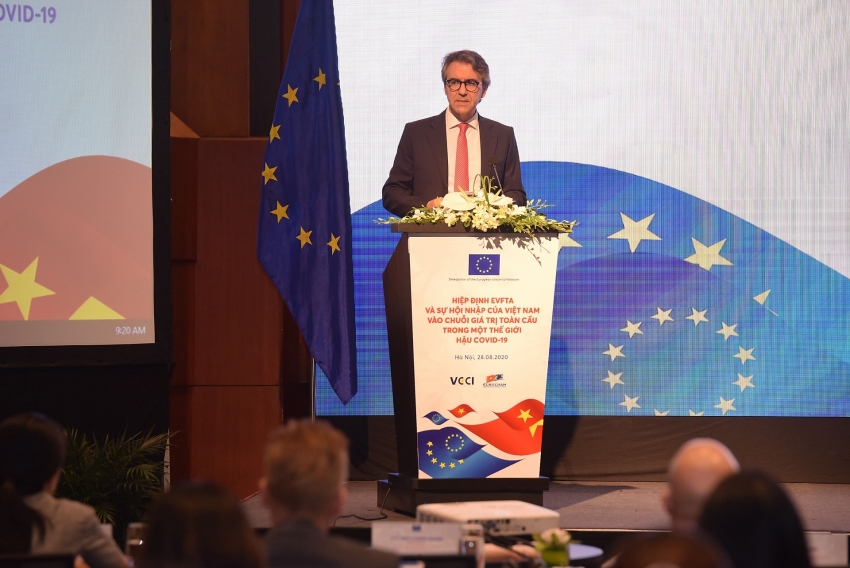 |
| Giorgio Aliberti, head of the Delegation of the EU to Vietnam |
According to Dr. Vu Tien Loc, president of the Vietnam Chamber of Commerce and Industry, Vietnam's economy is facing many difficulties under the negative impact of COVID-19 but the signing of the EVFTA has brought confidence and rare opportunities for businesses during this period.
“The agreement has opened up a 'highway to Europe' for Vietnamese businesses. However, not only has the EVFTA brought opportunities but also challenges by putting local companies in the same arena with giants. Overcoming these great challenges will lay a solid foundation for the development of Vietnamese businesses in the current highly competitive integration context,” Loc noted.
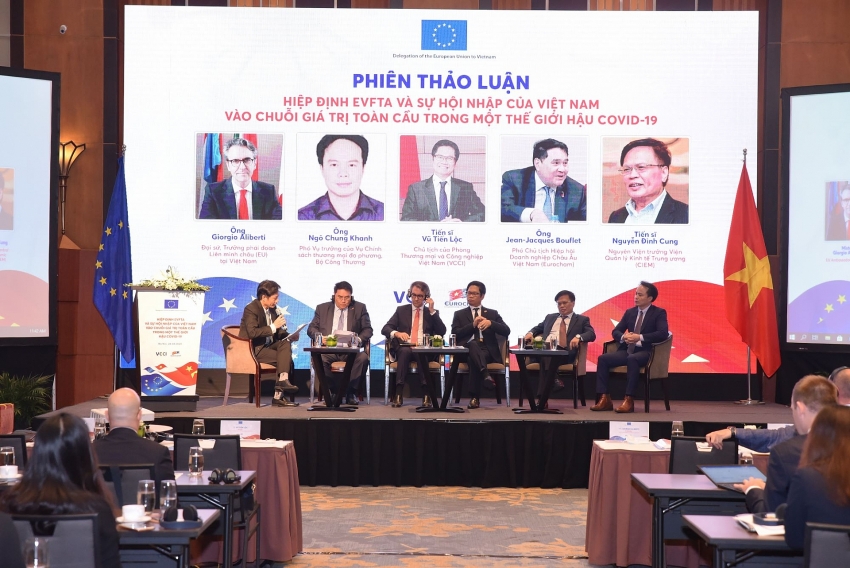 |
In his speech at the seminar, Dr. Carsten Schittek, Minister Counsellor and Head of the EU Trade Section of the Delegation shared his opinion about the EVFTA and its contributions to accelerating Vietnam’s integration into the EU's global value chains (GVCs) after COVID-19. Meanwhile, Jean-Jacques Bouflet, vice president of the European Business Association (EuroCham) focused on strengthening linkages between Vietnamese and European companies in in the context of the EVFTA post-COVID-19.
Truong Chi Binh from the Institute of Industry Strategy Policy (IPSI) of the Ministry of Industry and Trade (MoIT) cum vice president, general secretary of the Vietnam Association for Supporting Industries (VASI), said that integration into the GVCs will roll many challenges in the way of Vietnamese enterprises so they will need ample support such as access to credit (concessional loans and non-collateral guarantees), stabilisation of costs and labour sources, reduction of administrative procedures and informal costs, and more (and better prepared) enterprises in the supporting industry.
He added that local companies will also need help with reaching international standards, improving management processes, lean administration, cost reduction, trade capability and connectivity, setting up clusters of businesses to produce complete sets of components, and with penetration opportunities to new markets.
Also at the seminar, Dr. Nguyen Thi Thu Trang, director of the WTO's International Trade Center (WITC) of the Vietnam Chamber of Commerce and Industry (VCCI) discussed the opportunities and challenges from the EVFTA and COVID-19 relating to the objectives of attracting foreign investment, improving domestic added value, as well as reducing and eliminating barriers to GVCs.
Along with the opportunities, he highlighted the intrinsic drawbacks Vietnamese enterprises face in human resources, infrastructure, logistics, as well as challenges relating to the business environment and the connectivity and capabilities of domestic firms (especially in the supporting industries).
As part of the seminar, participants discussed the actions that should be taken by Vietnamese enterprises and by the government in order to seize the opportunities brought by the EVFTA to integrate further into the GVCs in the aftermath of COVID-19.
The seminar was the first of three round-table events to be organised by the EU Delegation until the end of 2020.
What the stars mean:
★ Poor ★ ★ Promising ★★★ Good ★★★★ Very good ★★★★★ Exceptional
 Tag:
Tag:
Themes: EVFTA & EVIPA
Related Contents
Latest News
More News
- Site clearance work launched for Dung Quat refinery upgrade (February 04, 2026 | 18:06)
- Masan High-Tech Materials reports profit: a view from Nui Phao mine (February 04, 2026 | 16:13)
- Hermes joins Long Thanh cargo terminal development (February 04, 2026 | 15:59)
- SCG enhances production and distribution in Vietnam (February 04, 2026 | 08:00)
- UNIVACCO strengthens Asia expansion with Vietnam facility (February 03, 2026 | 08:00)
- Cai Mep Ha Port project wins approval with $1.95bn investment (February 02, 2026 | 16:17)
- Repositioning Vietnam in Asia’s manufacturing race (February 02, 2026 | 16:00)
- Manufacturing growth remains solid in early 2026 (February 02, 2026 | 15:28)
- Navigating venture capital trends across the continent (February 02, 2026 | 14:00)
- Motivations to achieve high growth (February 02, 2026 | 11:00)

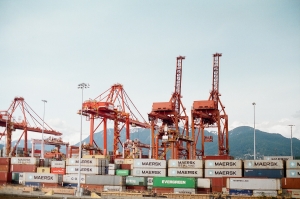

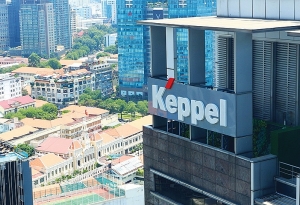
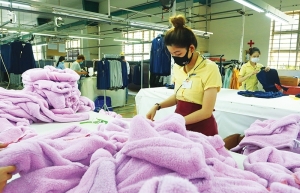




















 Mobile Version
Mobile Version